Click to play audio
What most people would consider rubbish are often things that have real meaning for hoarders. Many of those things are of little or no monetary value but are attached to a strong emotional connection to the person and come with feelings of grief, sadness and fear when they are lost or taken away.
The reasons why someone begins to hoard aren’t yet fully understood. They may be struggling to cope with a traumatic life event, such as the death of a loved one but why it manifests itself this way is unknown. Some of the people I met have twenty years of established behaviour. Many others do realise that they have a problem but are reluctant to seek help because they feel extremely ashamed, humiliated or guilty. It is this guilt that keeps these behaviours secret from the people around them, this shame pushing them further inside and leading to more accumulation.
Although it is estimated to occur in between 2% and 5% of the population, there are no clear pathways to access support within existing health and wellbeing services. In the absence of medical recognition of hoarding as a specific disorder in the UK, statutory organizations look to regulatory powers made within environmental health legislation. This legislation addresses the problems created by hoarders but does not recognise or address the needs of the person hoarding. The answer from above is to force solutions that in fact reinforce the problem instead of taking the time to understand why and to start from there.
These images portray the externalization of an internal world.
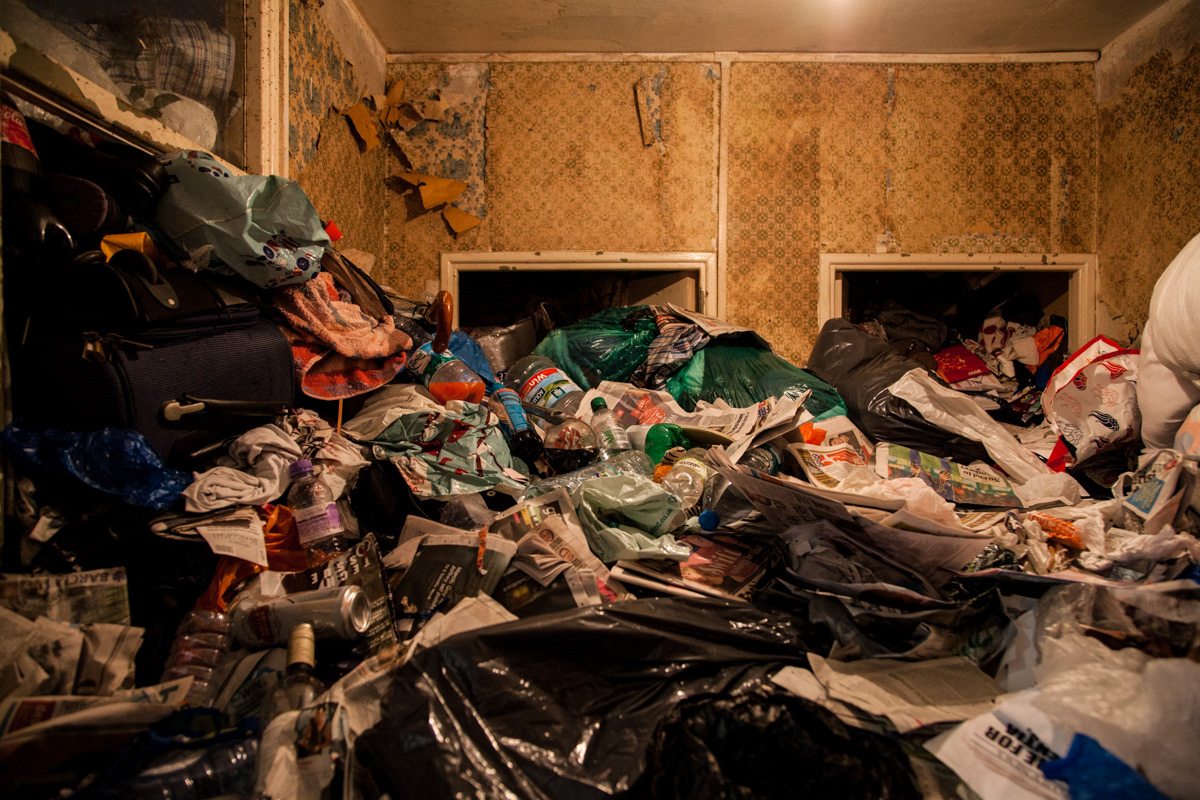
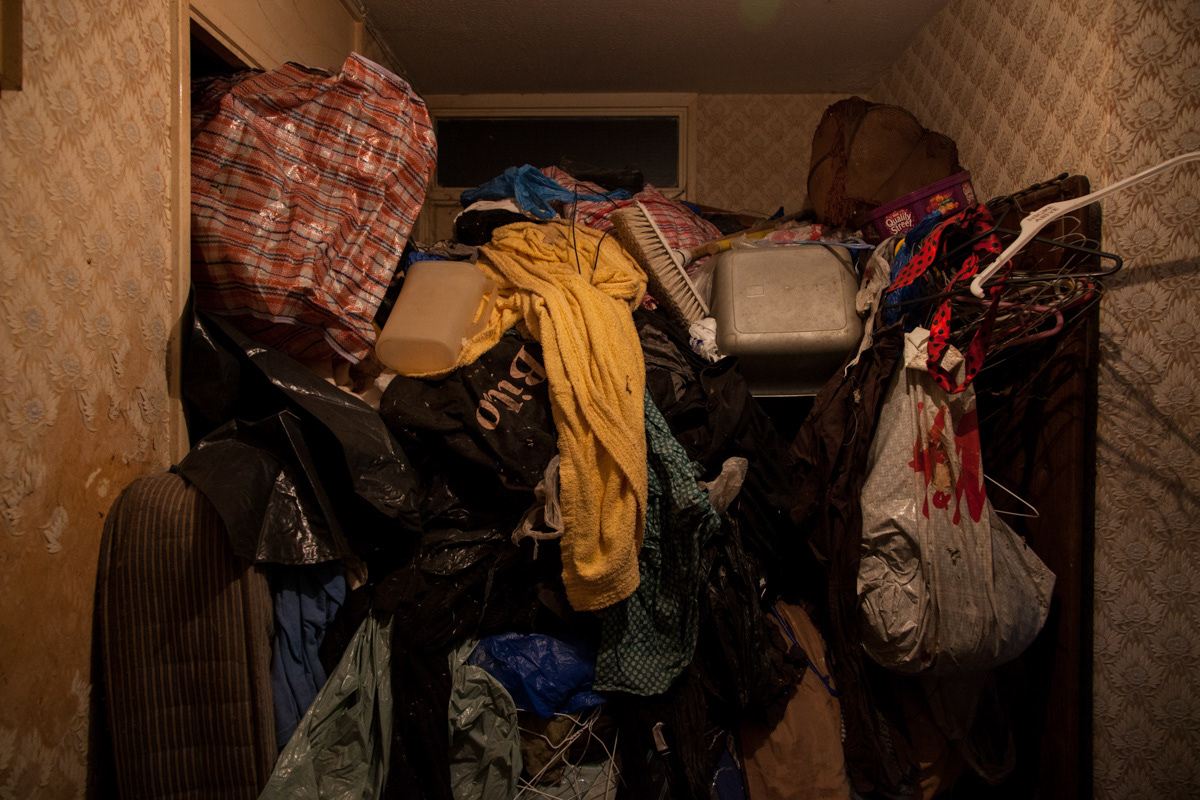
Play audio
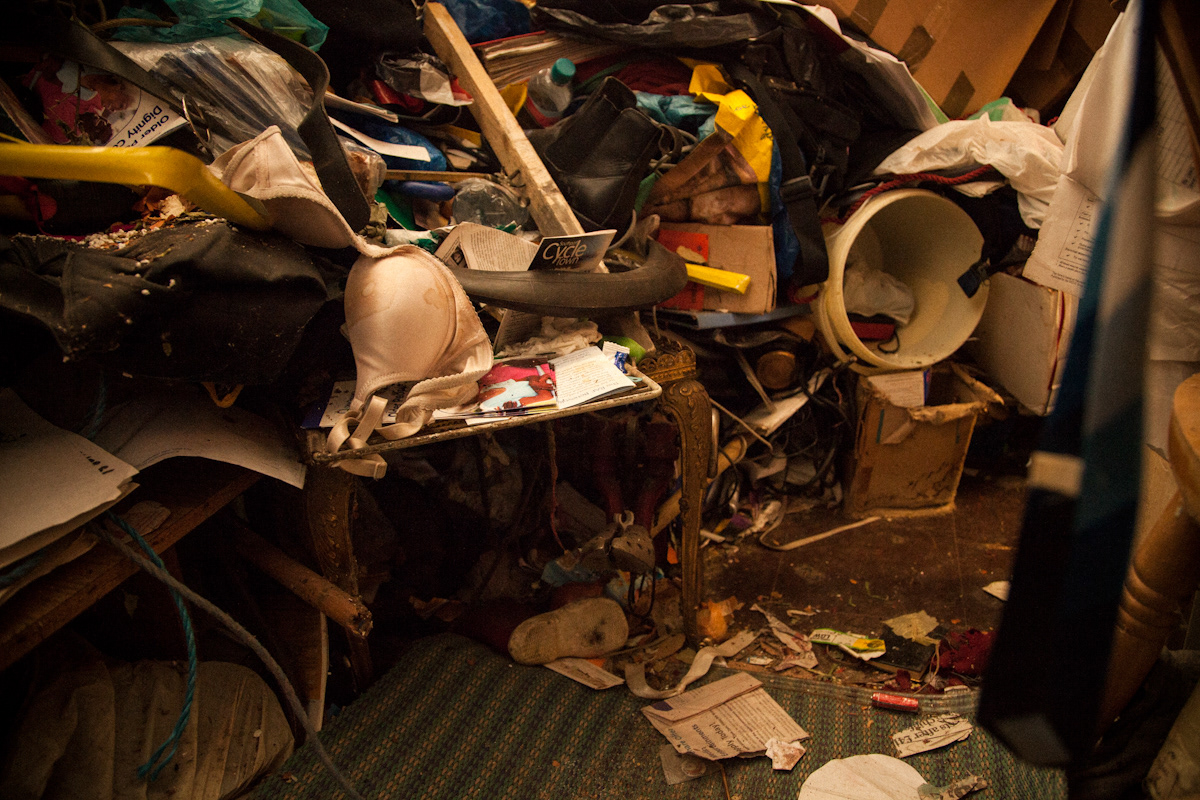
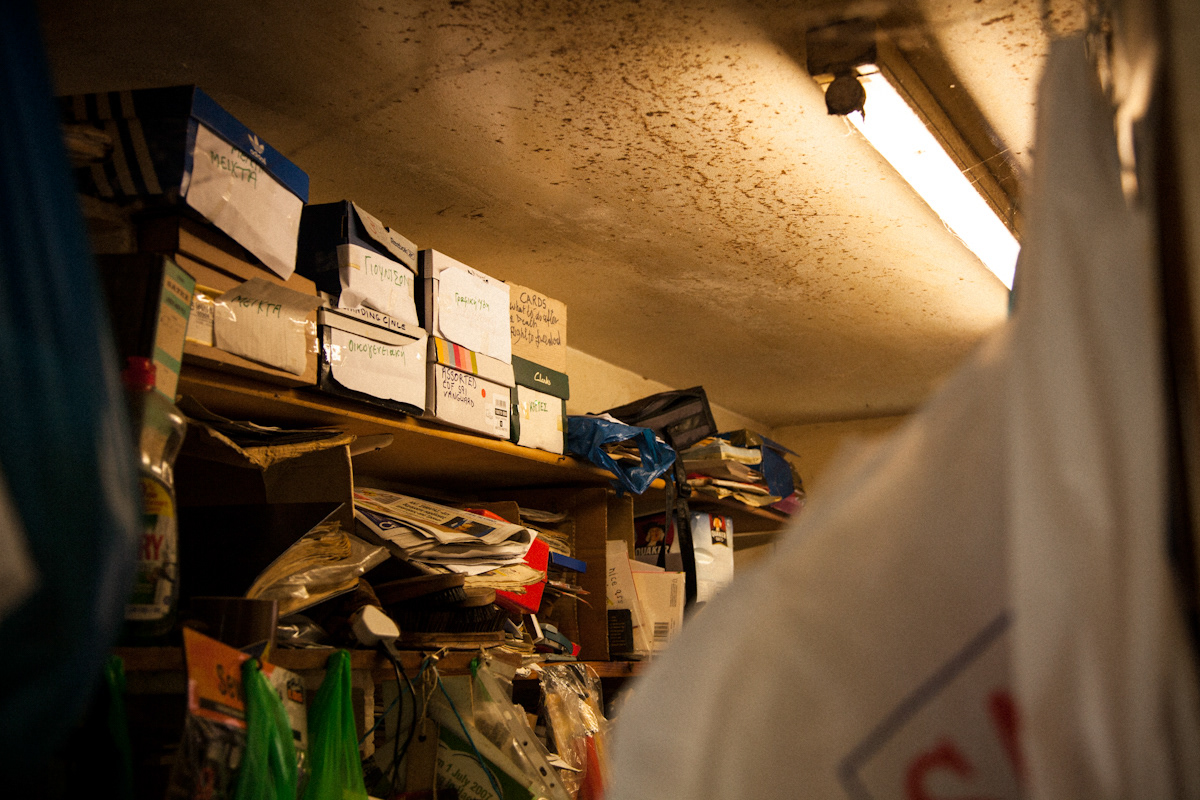
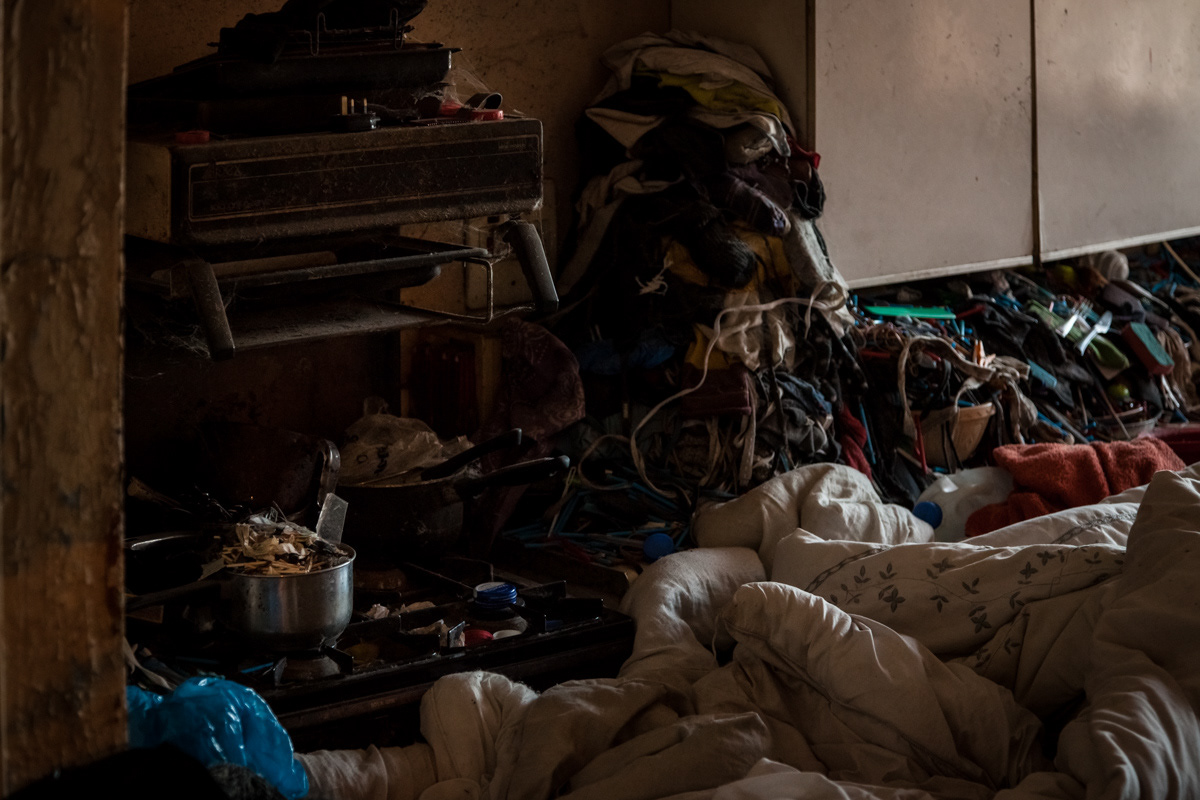
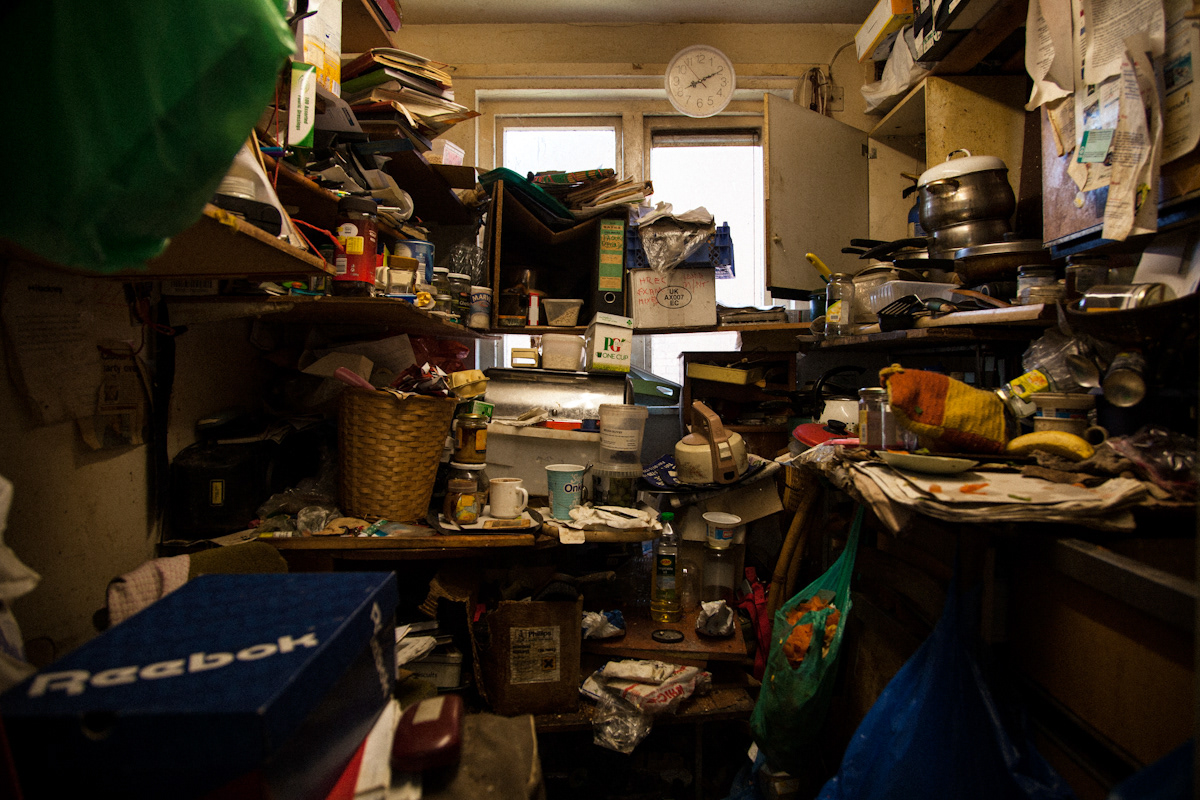
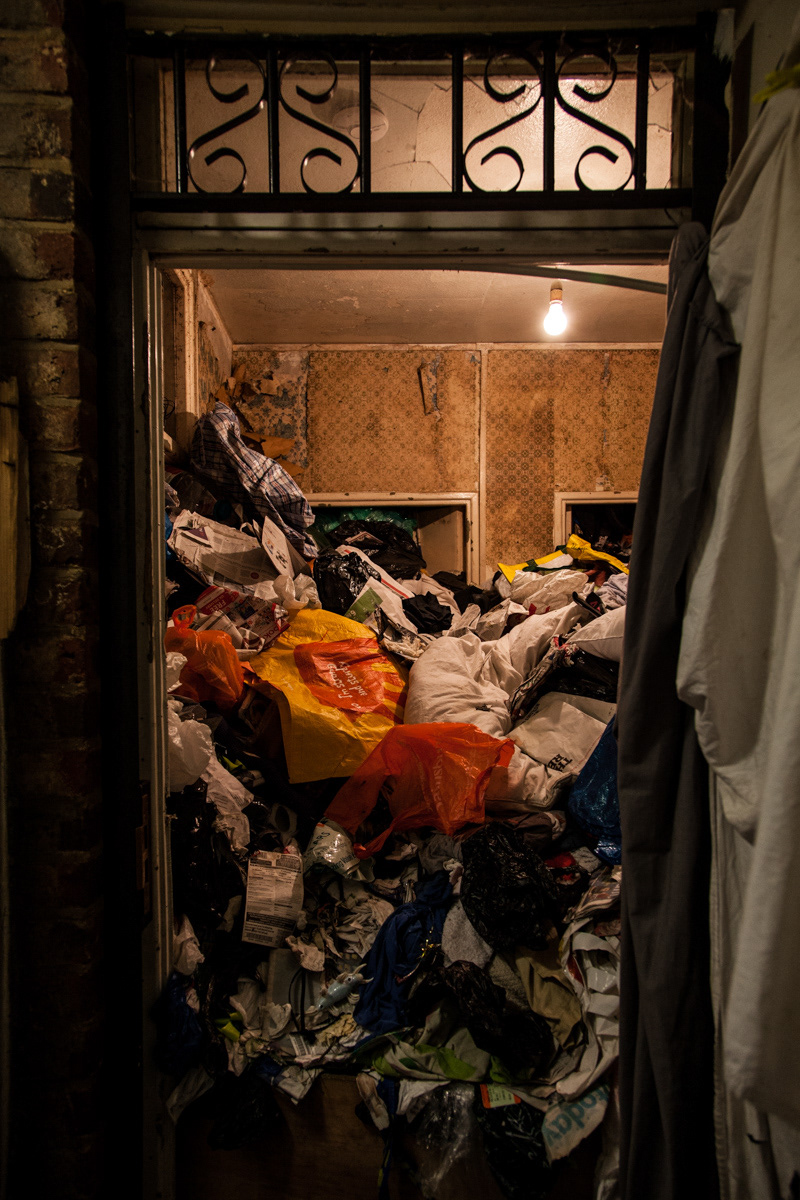
Play audio
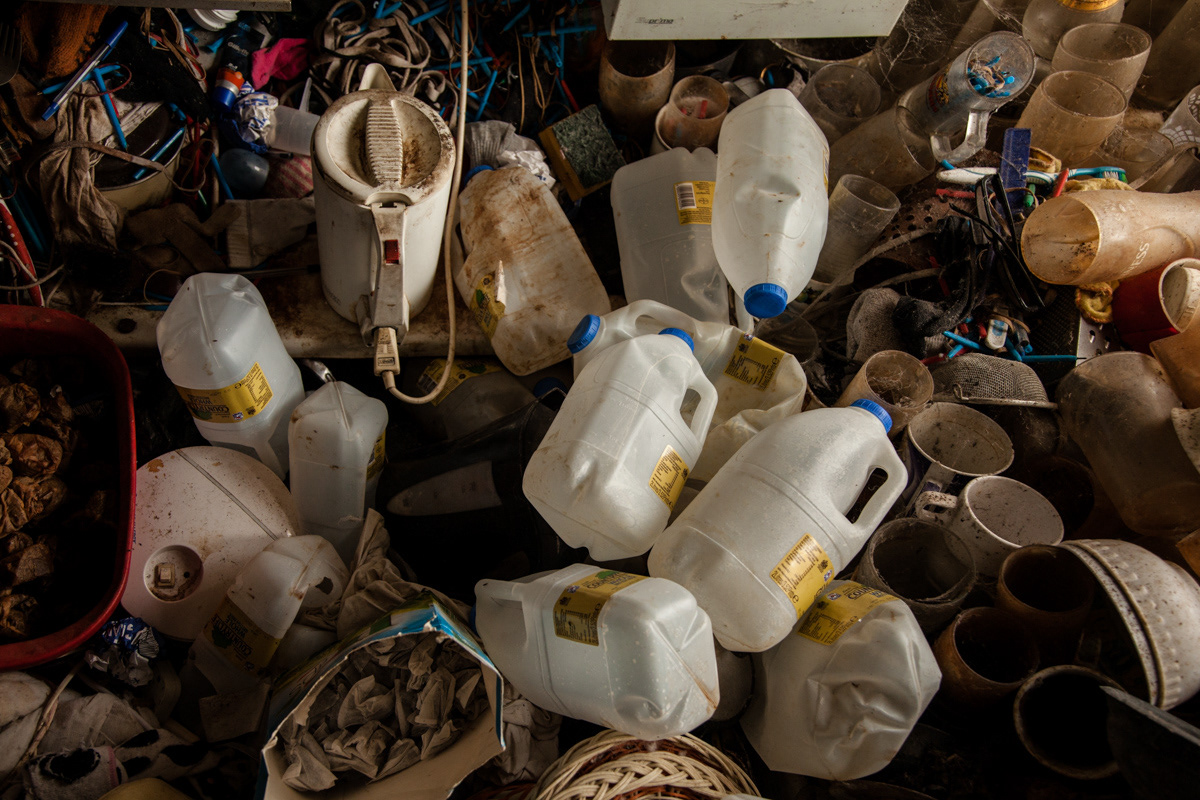
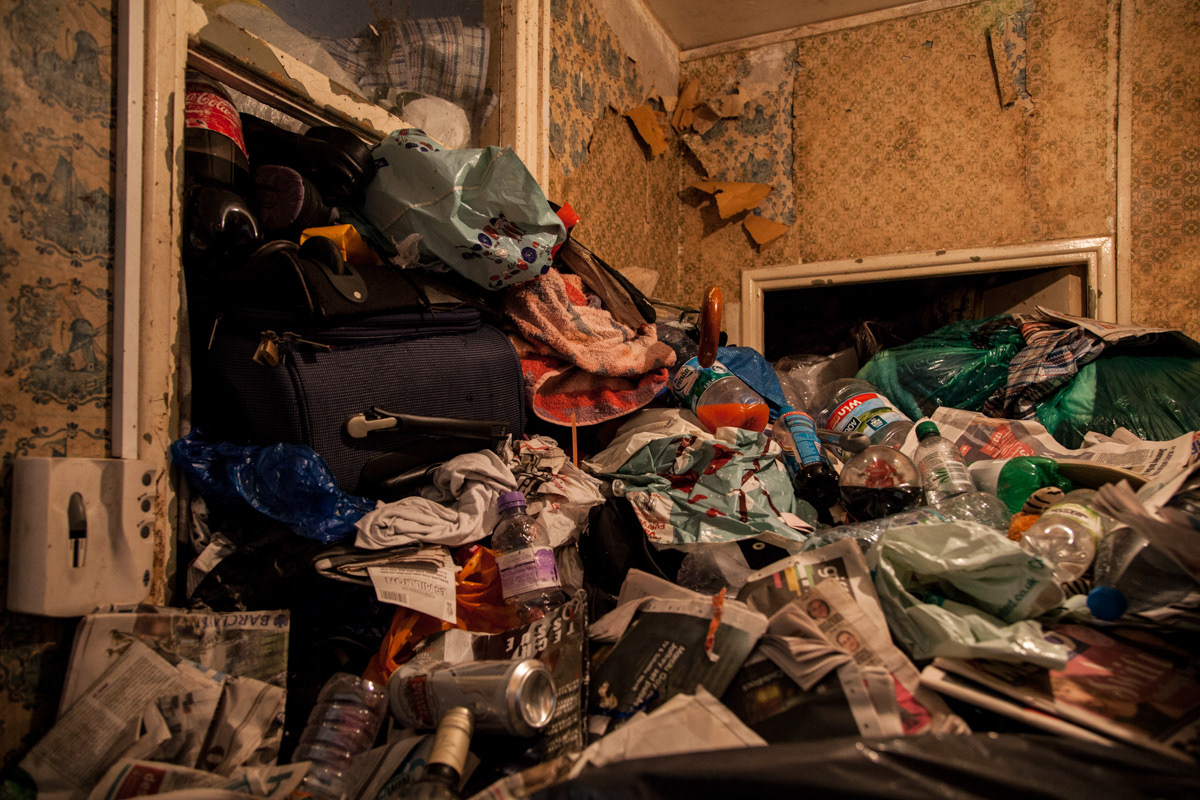
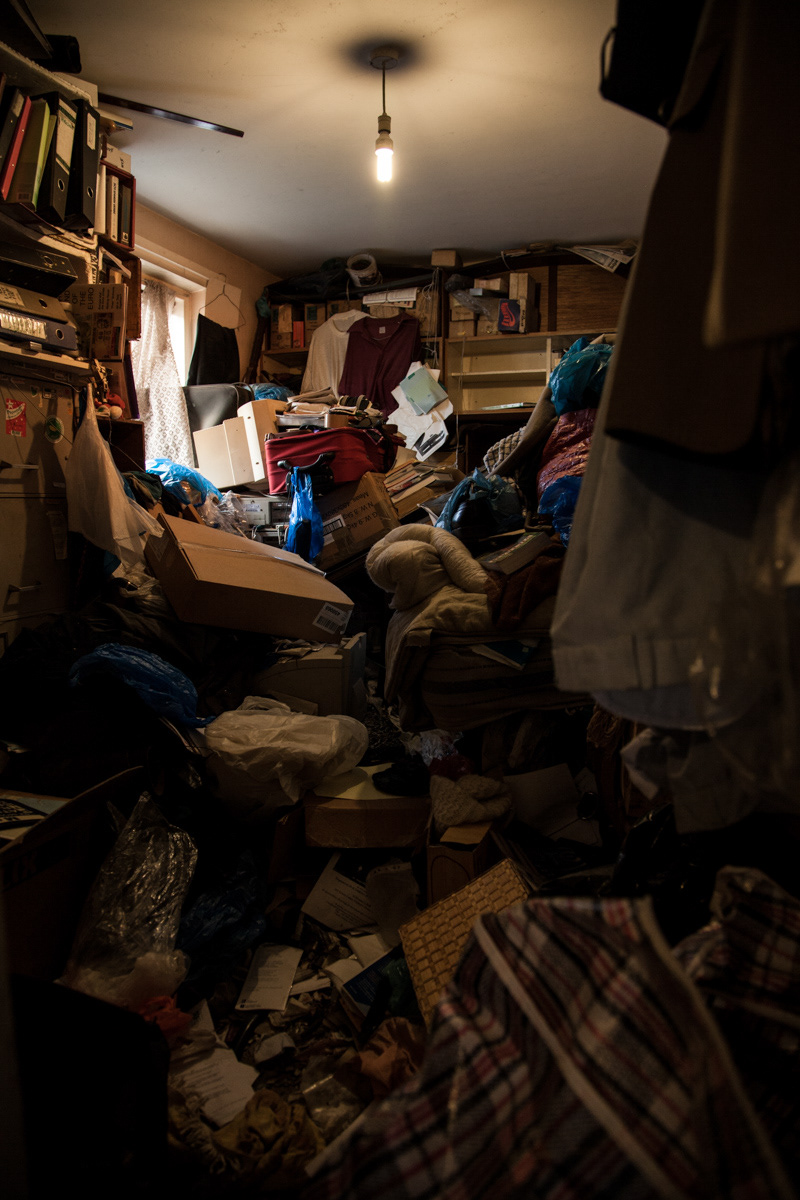
Play audio
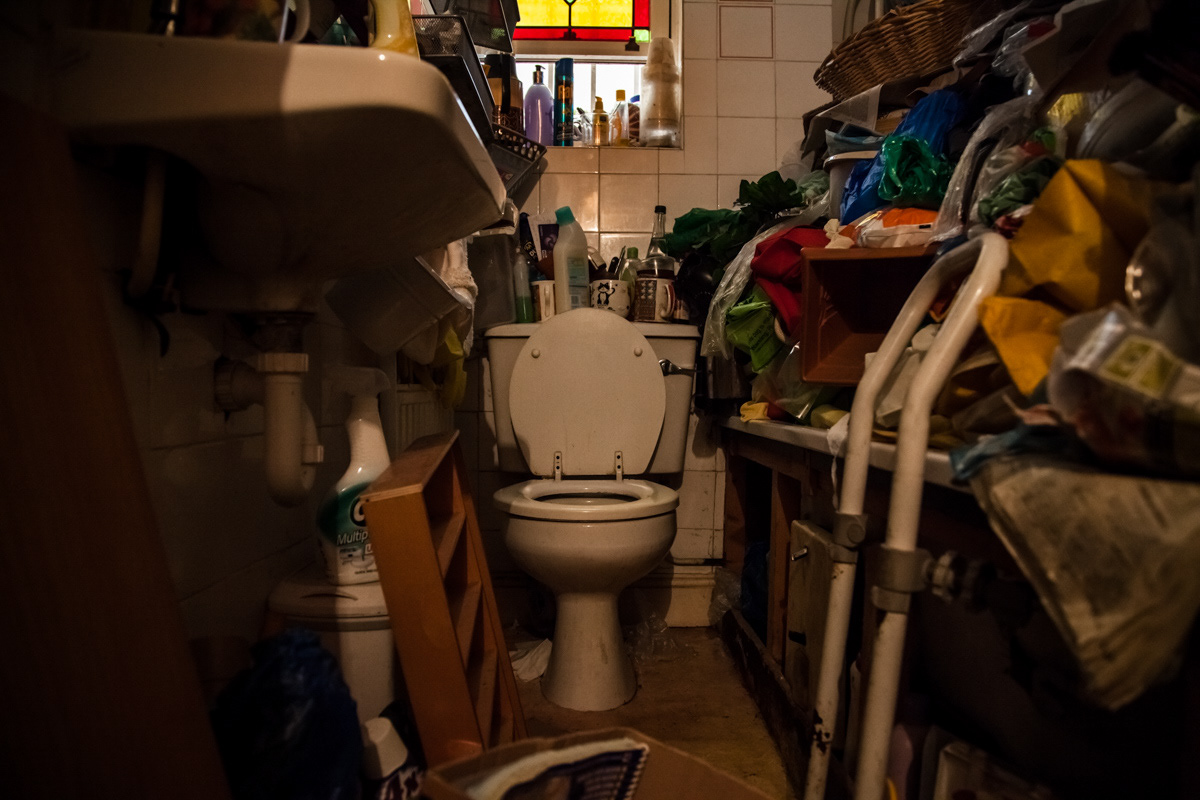
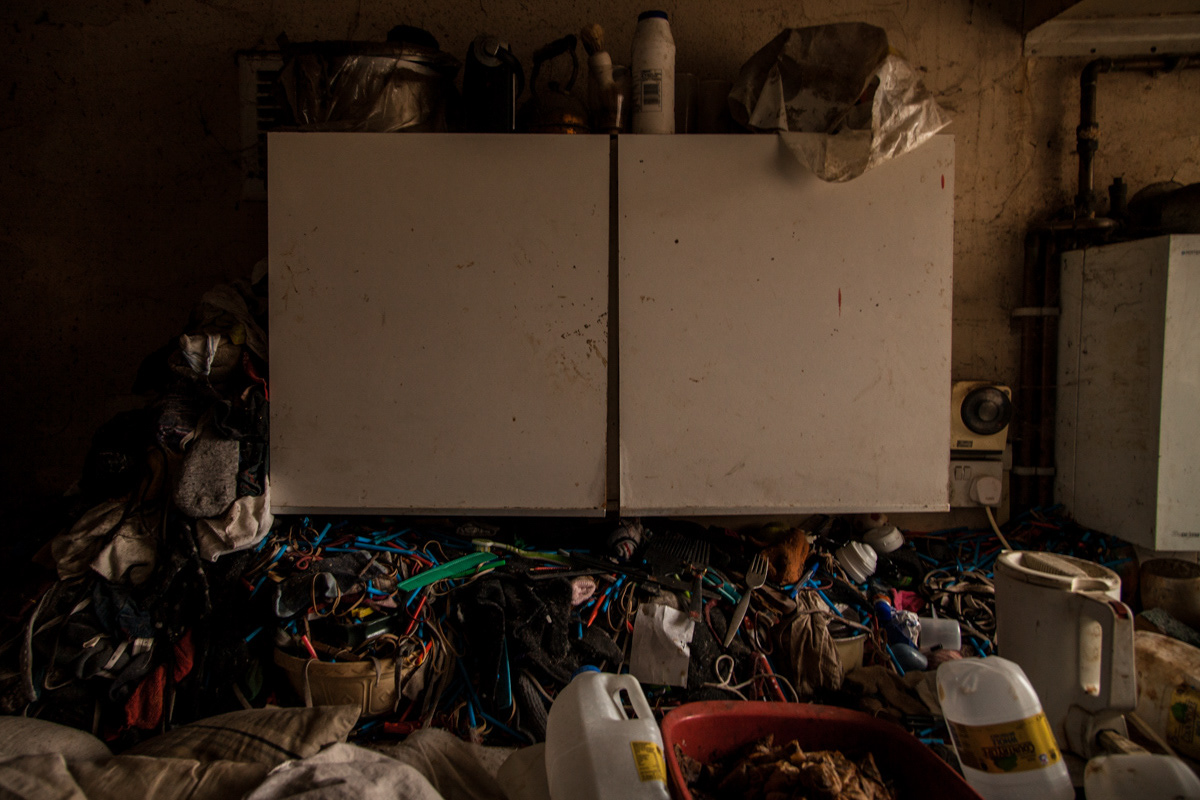
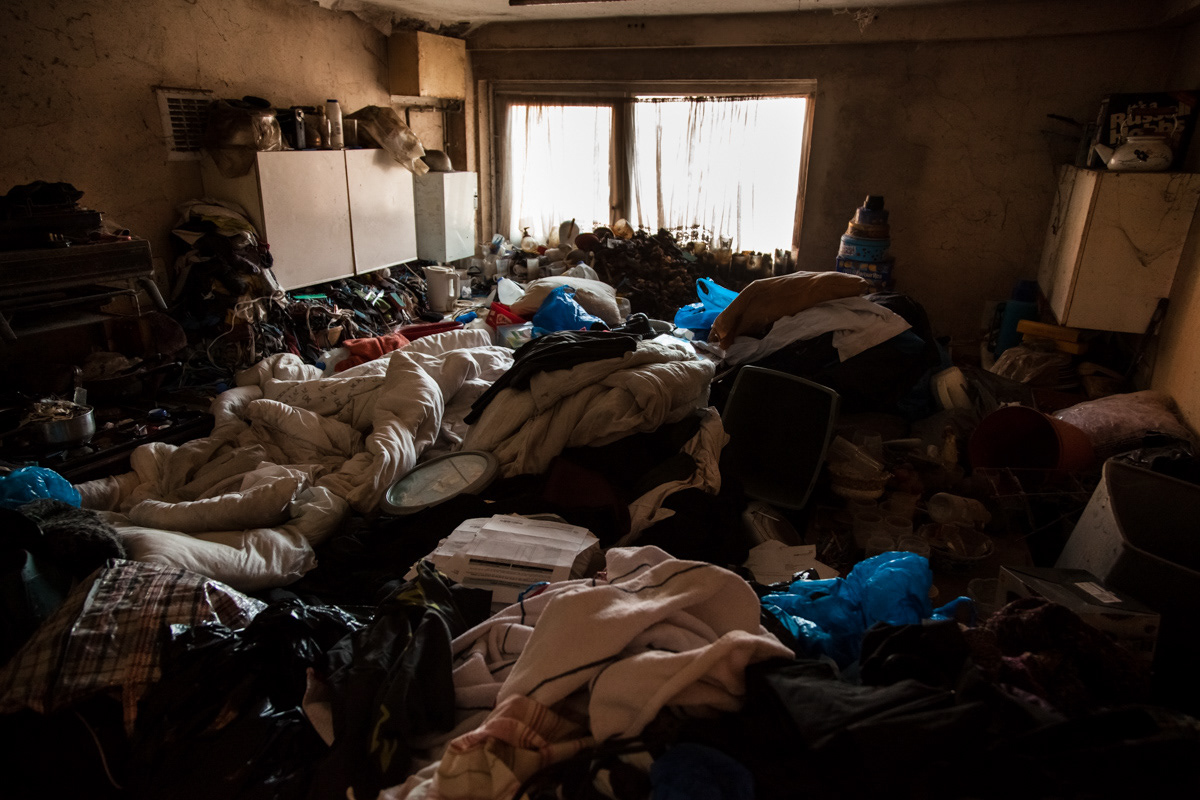
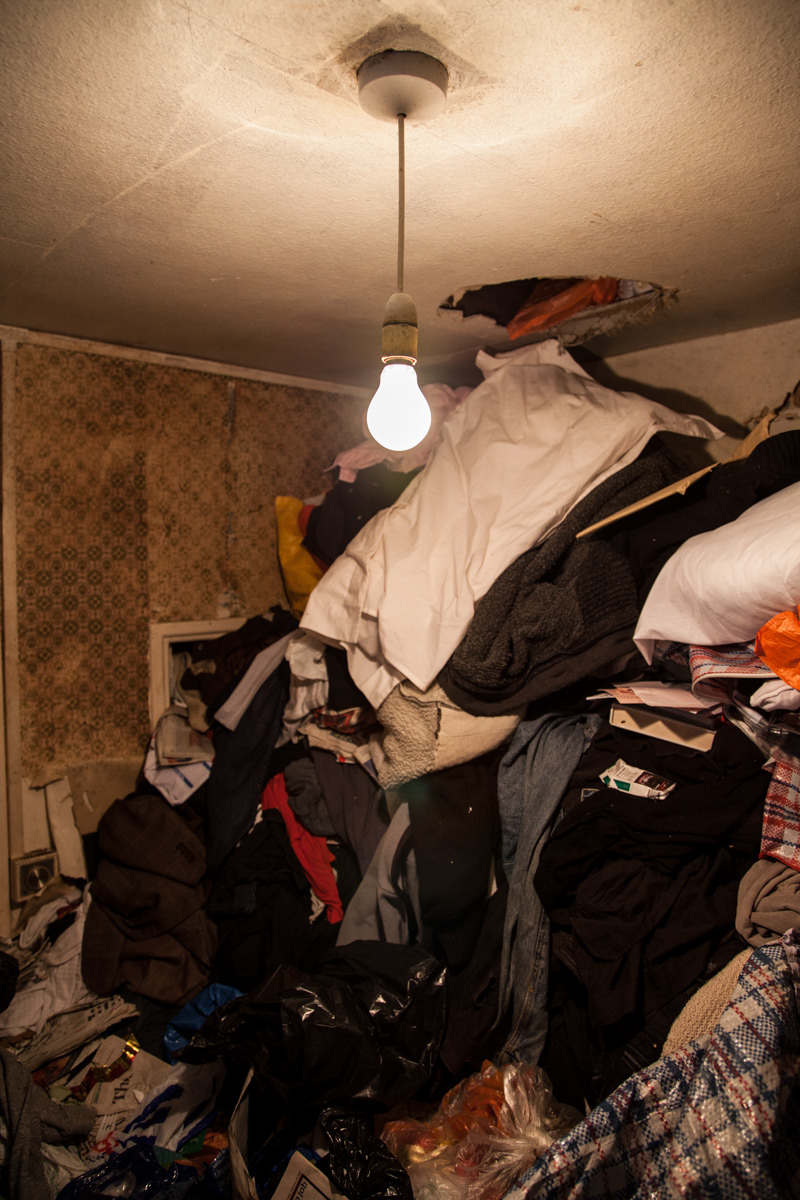
Play audio
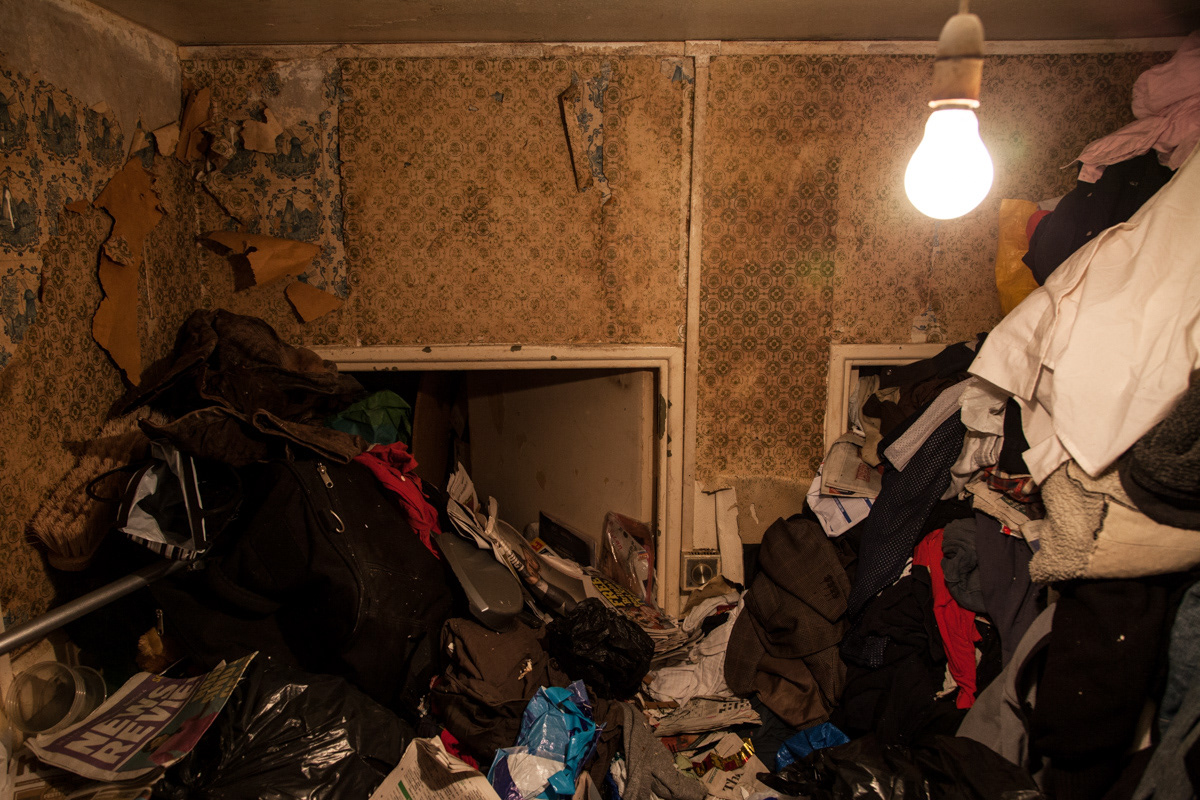
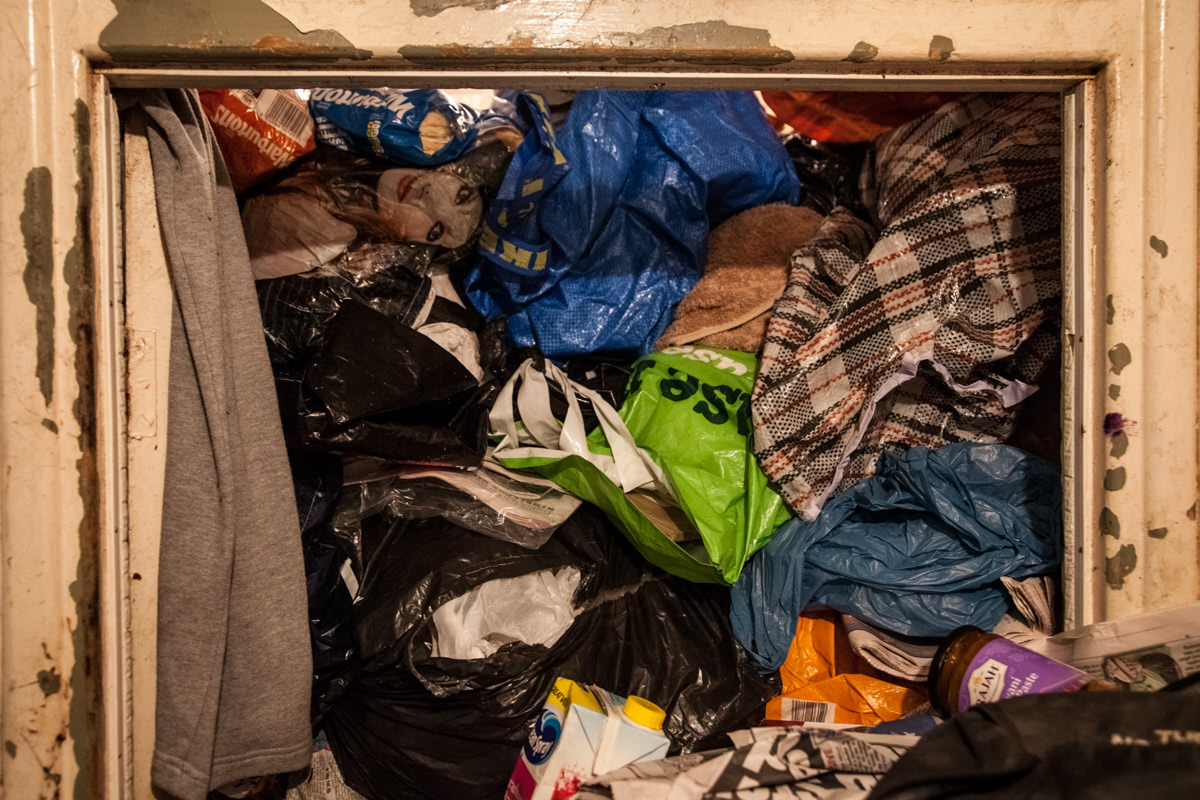
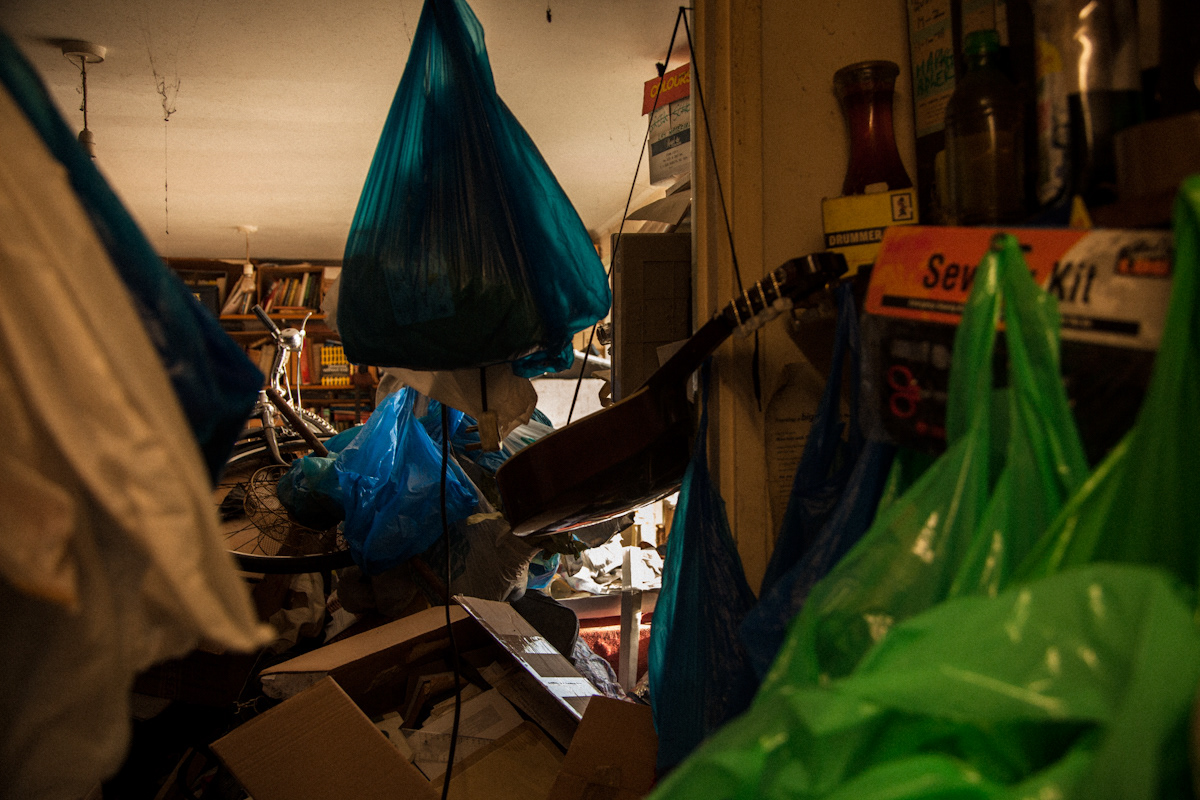
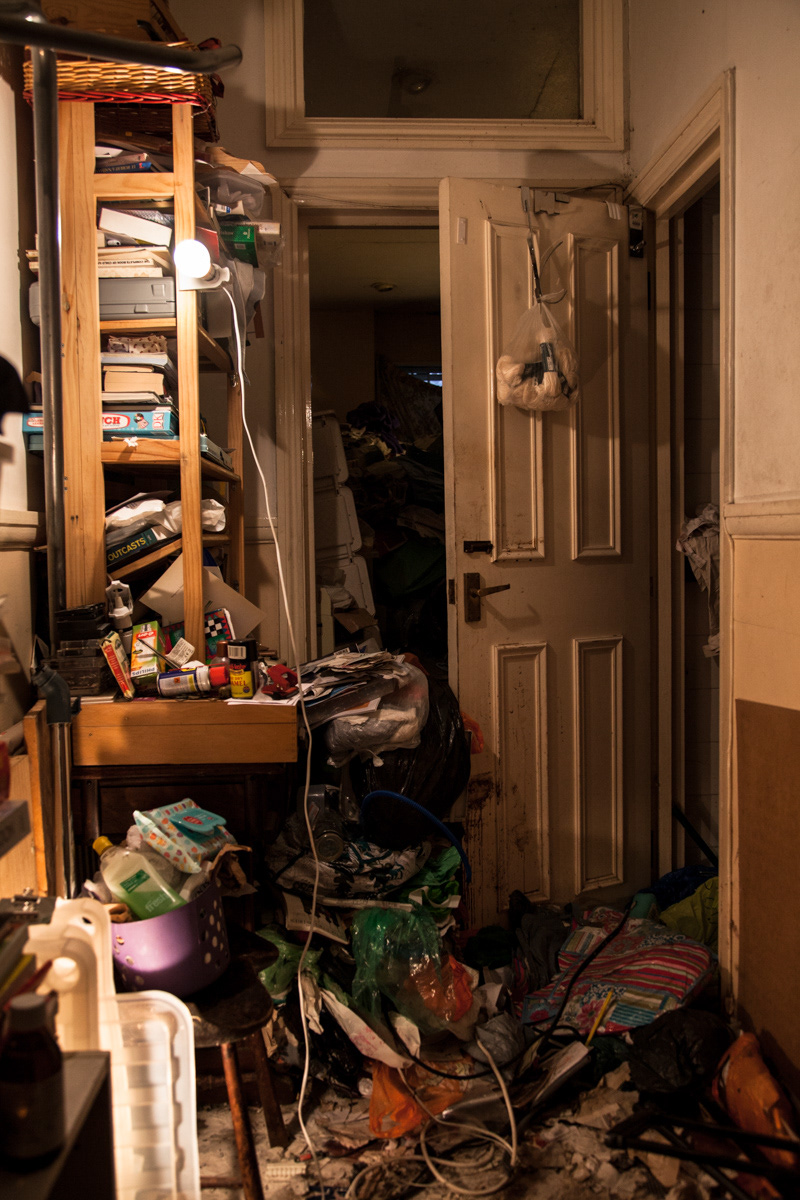
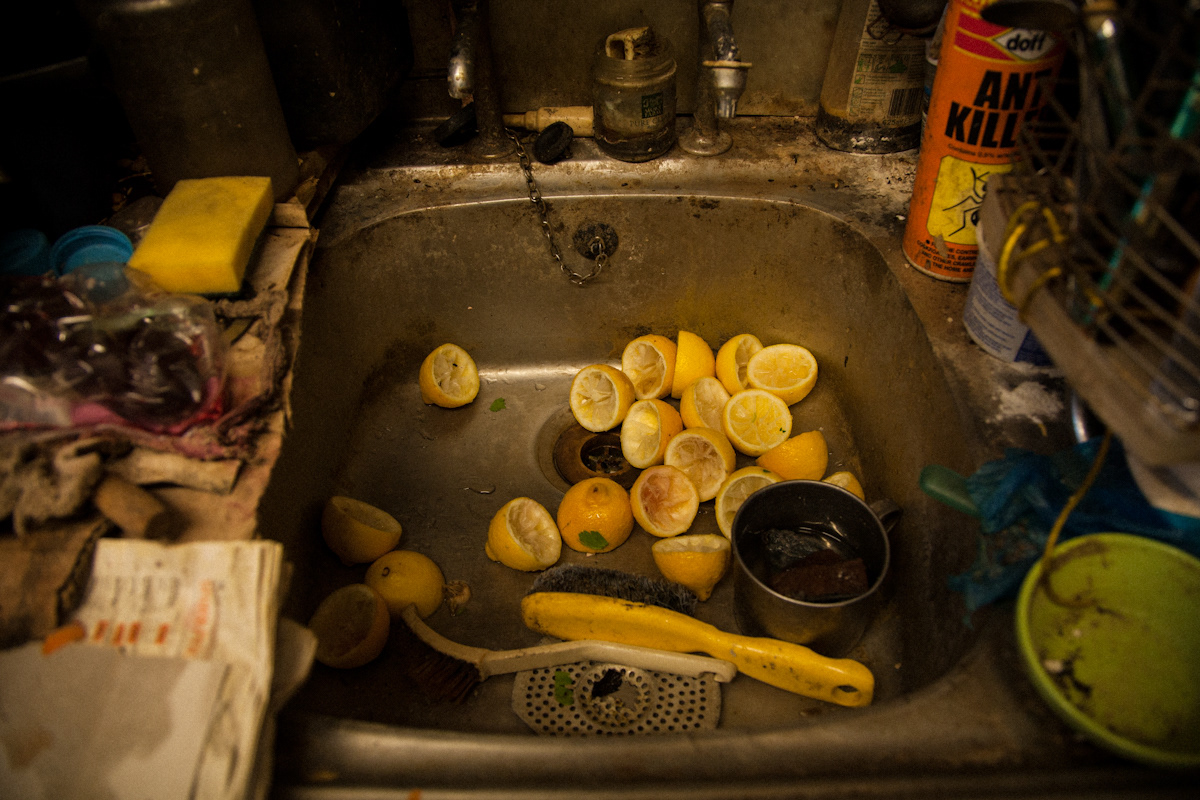
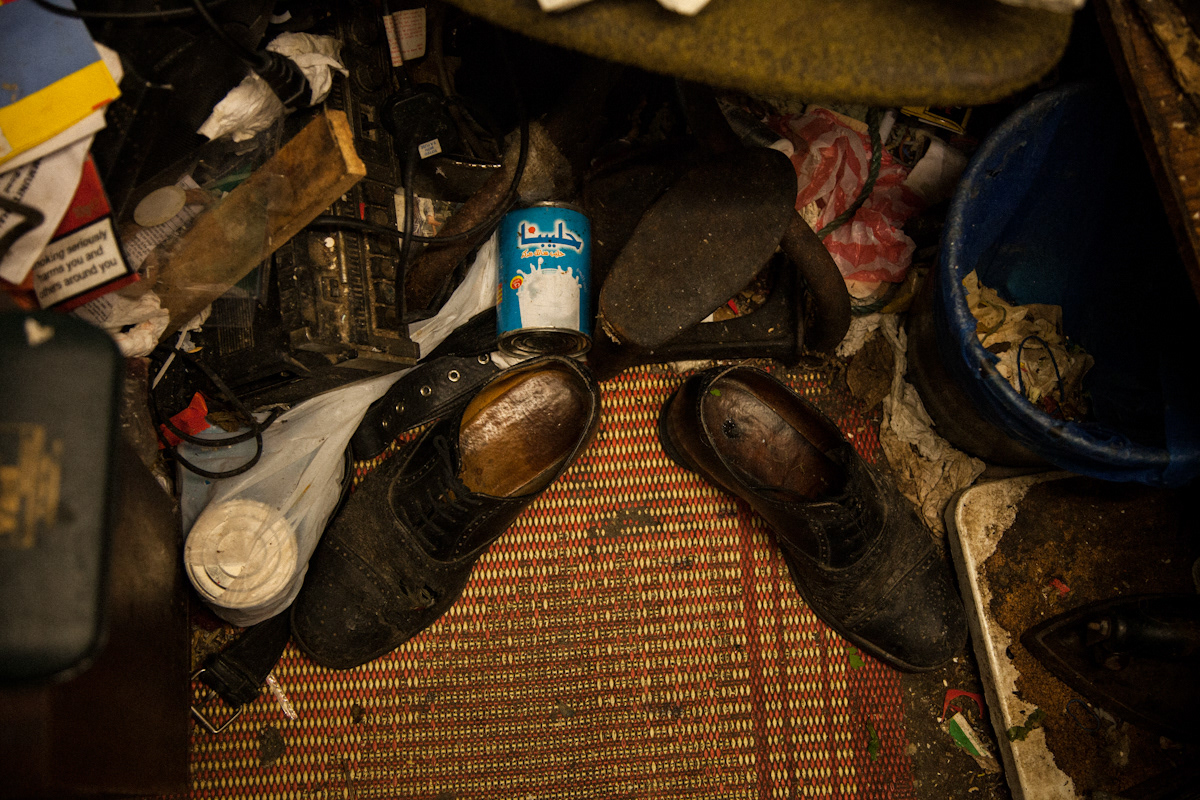
Play audio
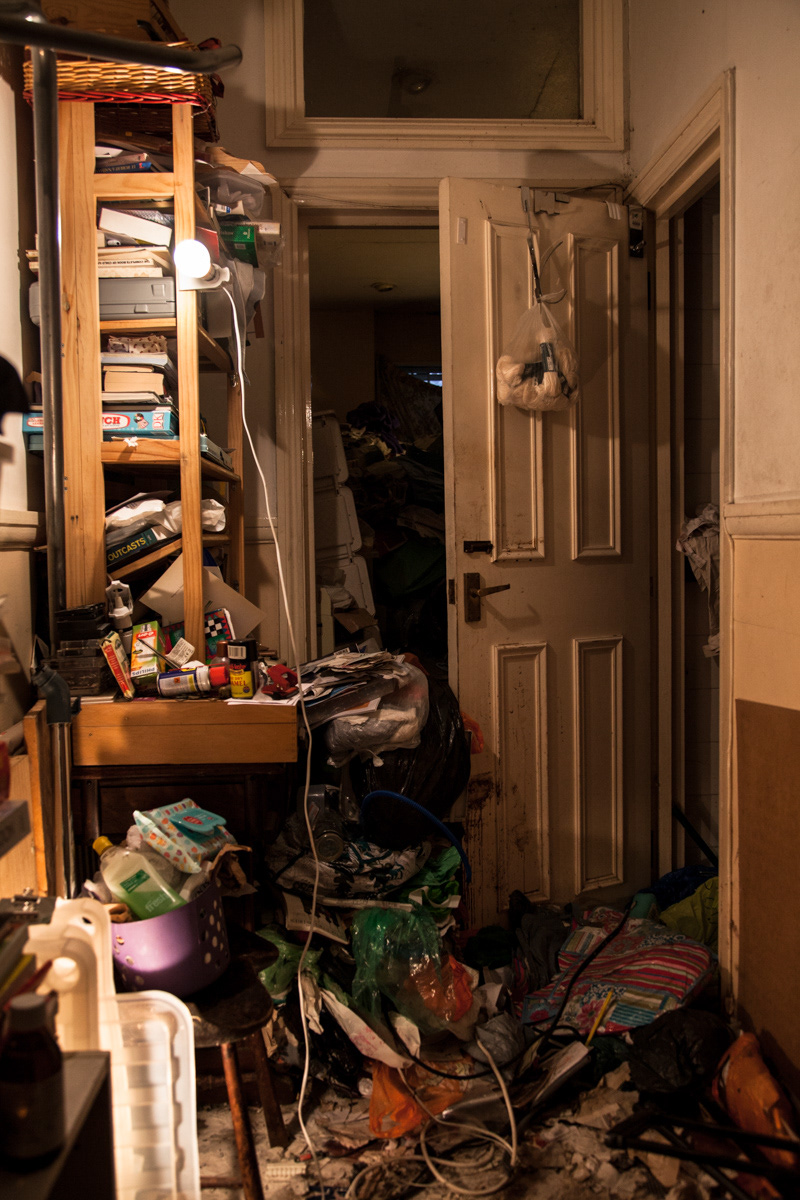
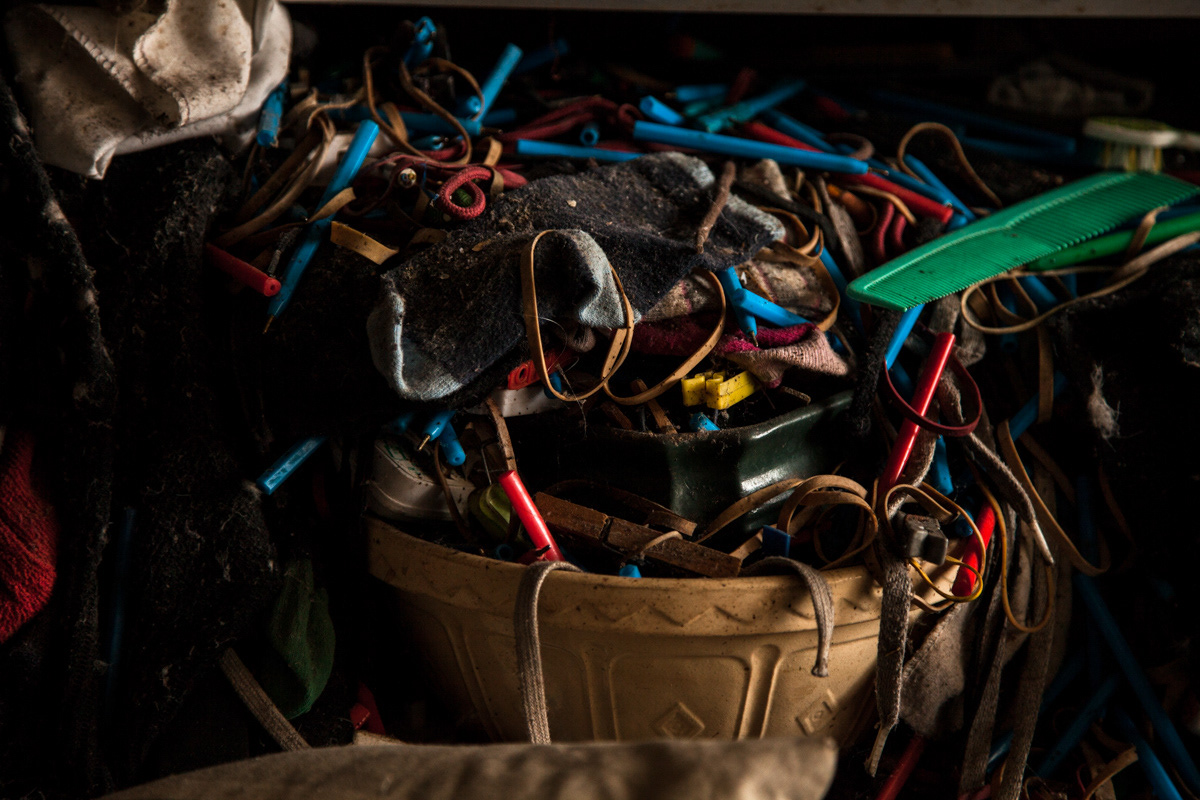
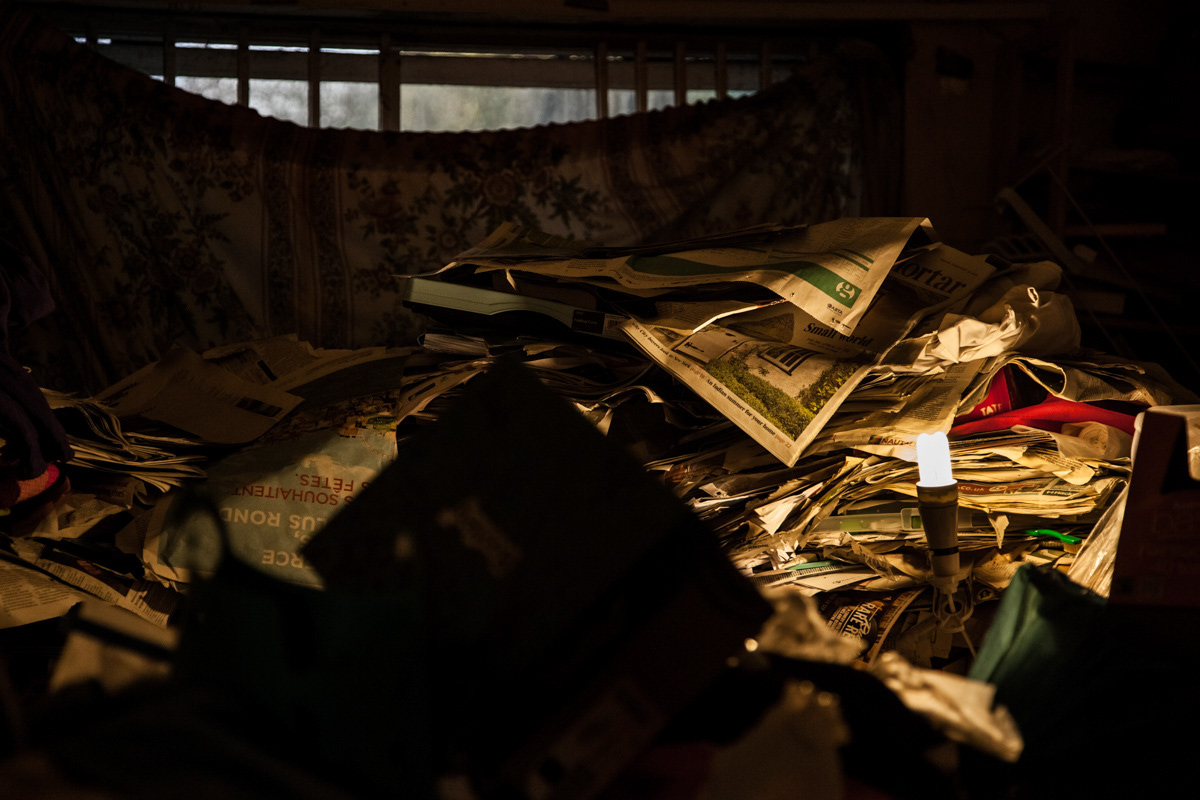
Play audio
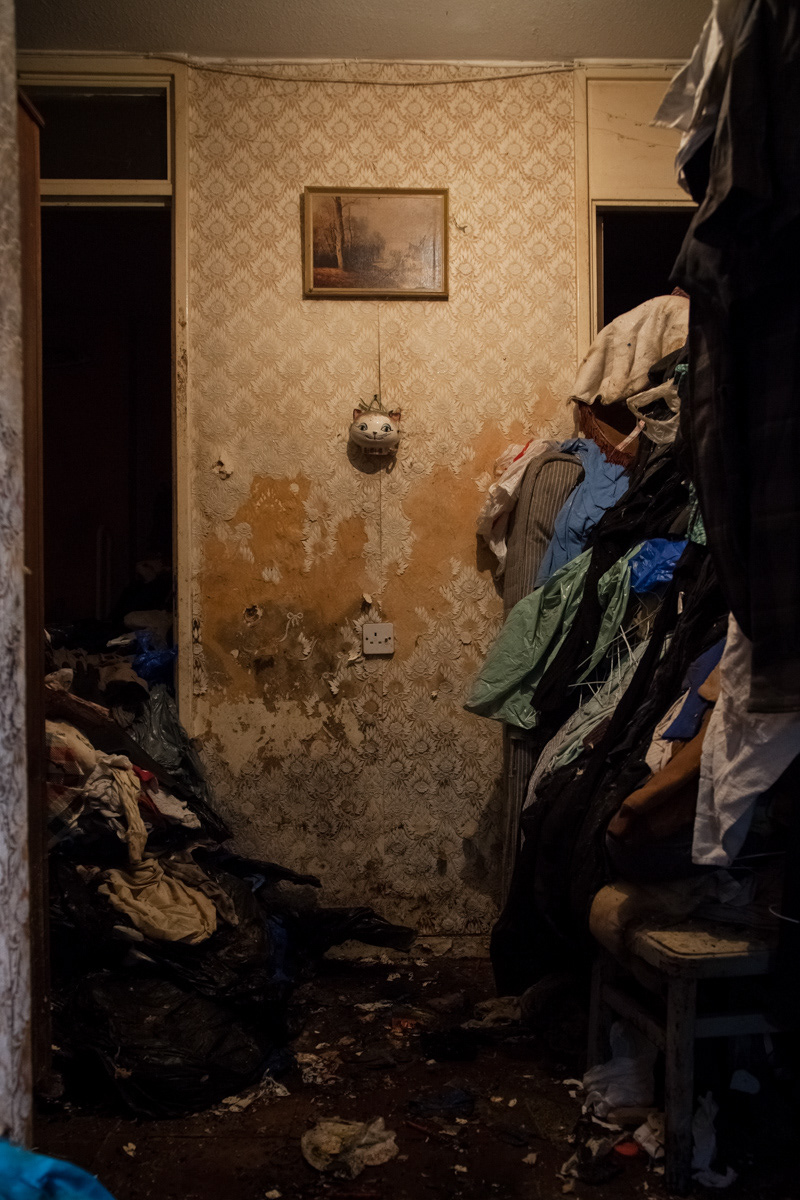
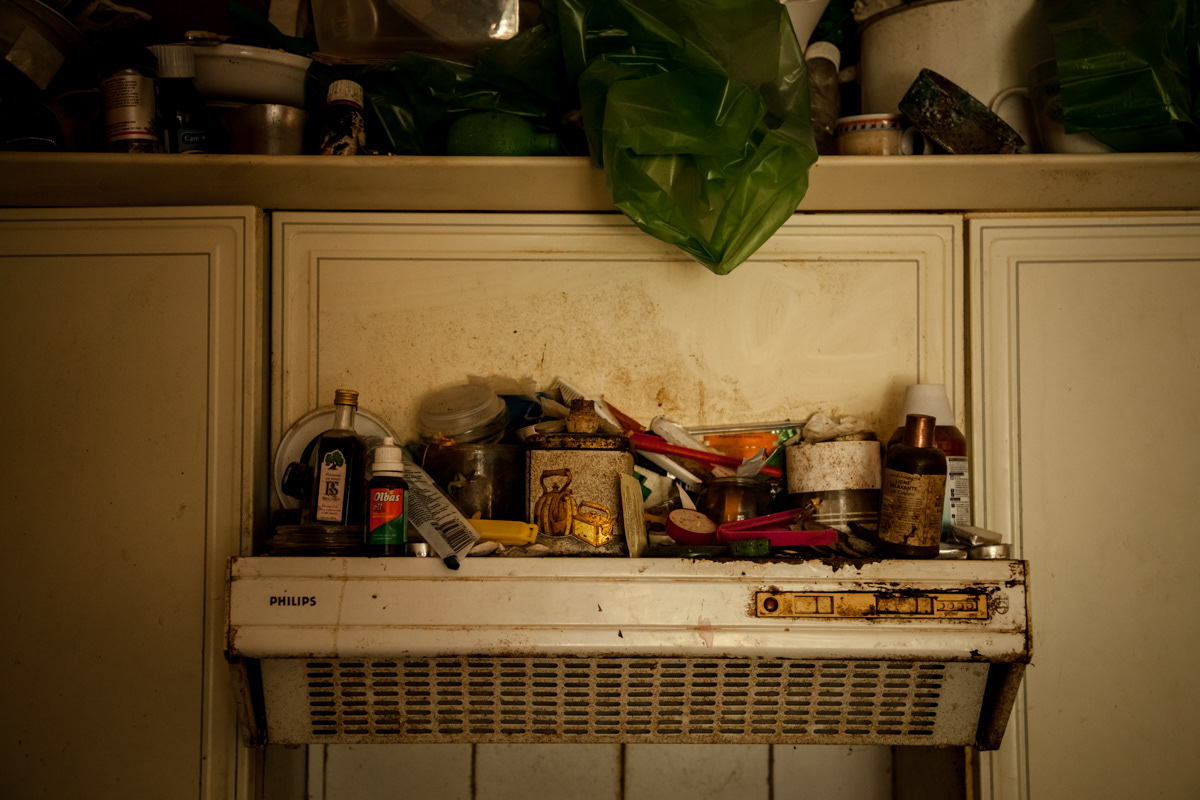
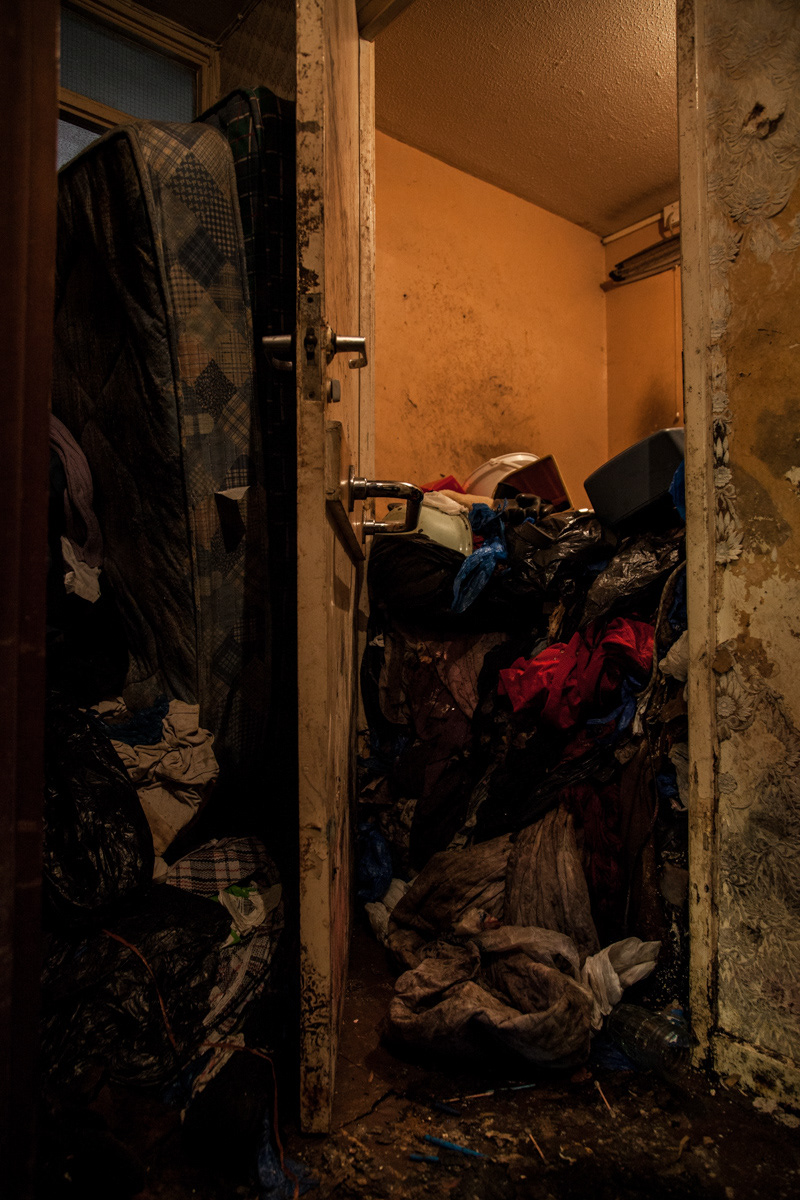
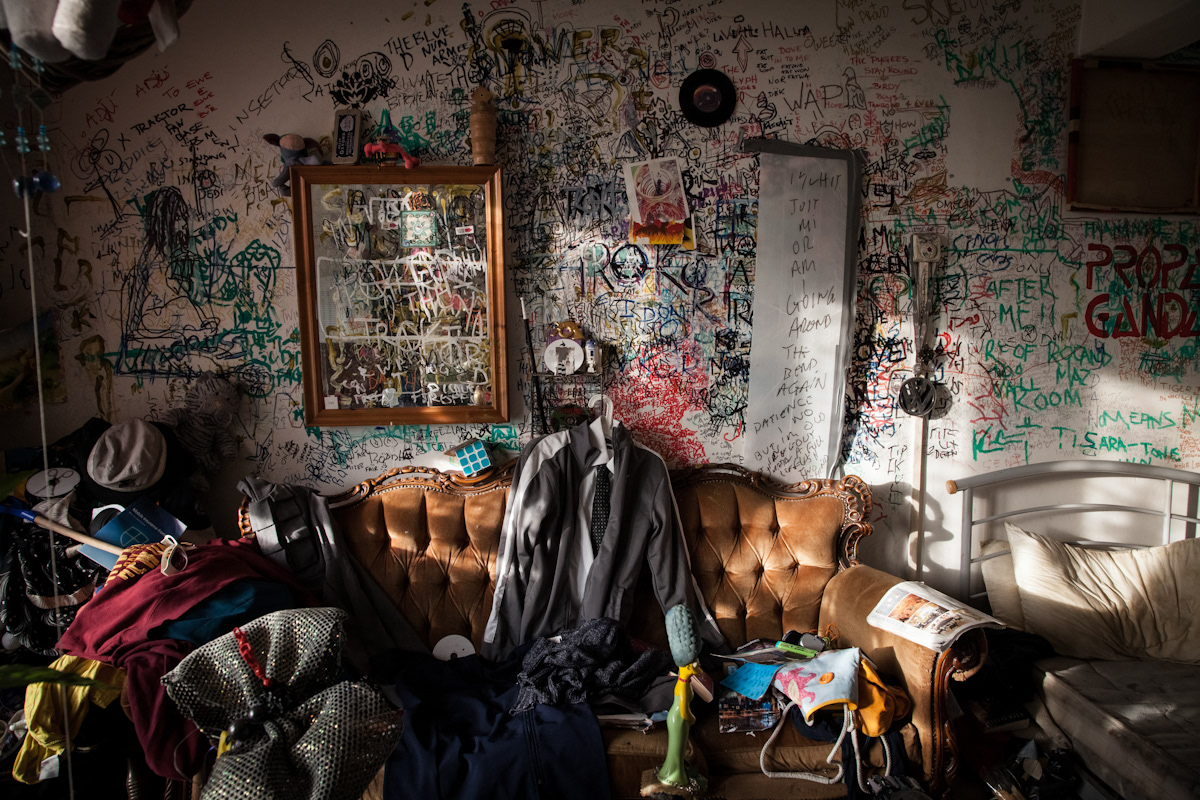
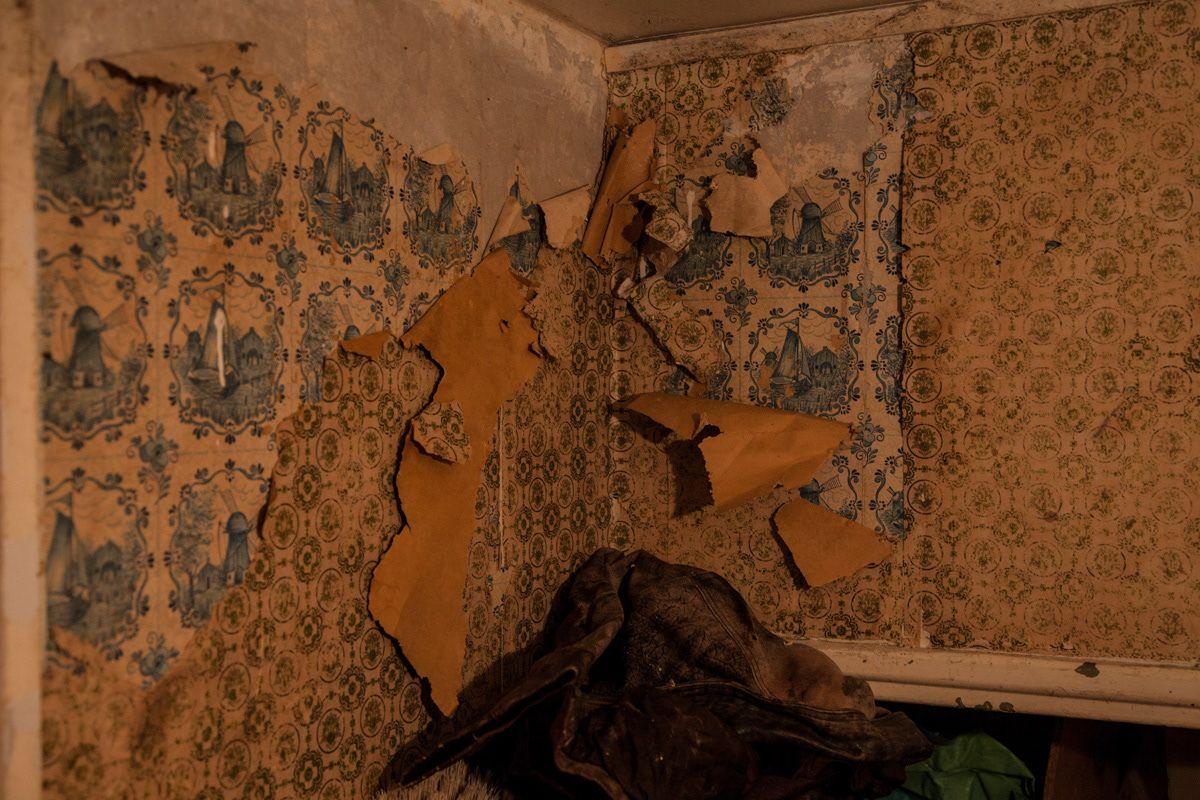
Play audio
During one year I worked with Making Room, a charity specifically working with hoarders. I arrived at their homes and together we work on clearing the clutter room by room. I didn’t throw anything away and I was there to encourage the sufferer, to assist them in developing decision-making strategies and to help them identify and challenge the underlying beliefs that contribute to the hoarding problem. It can often take months to achieve small goals and I admire their commitment, motivation and patience.
Although this new approach to hoarding is more time consuming, it is definitive and is centred on the person’s needs. Once they start, the process of de-cluttering alone is therapeutic and coupled with support from mental health experts can really start to make a meaningful change in their lives. I believe hoarders have to decide they want to change and to throw away their clutter, piece by piece. For this to happen they need support, patience and space.
Play audio
Play audio
